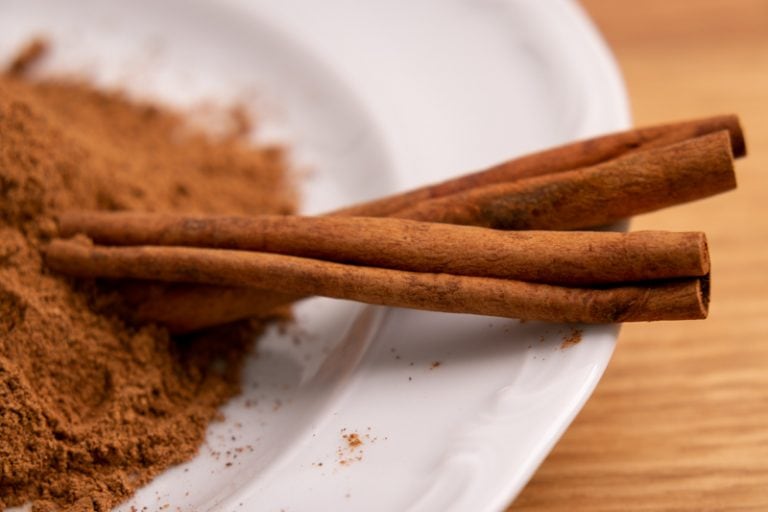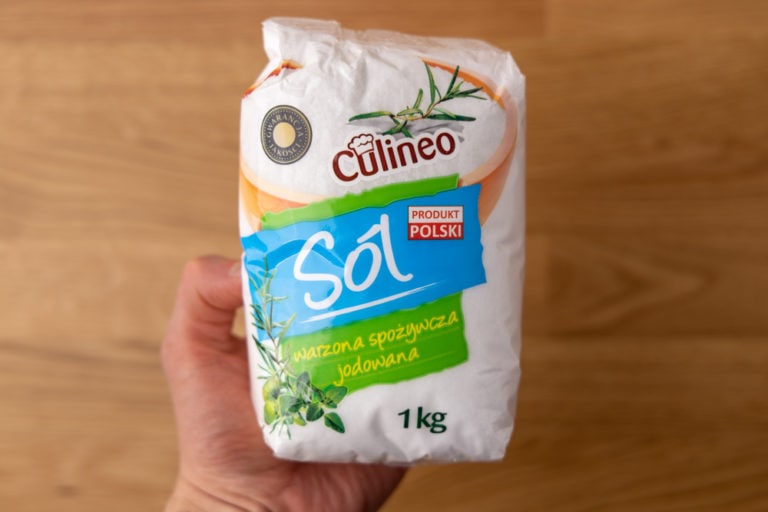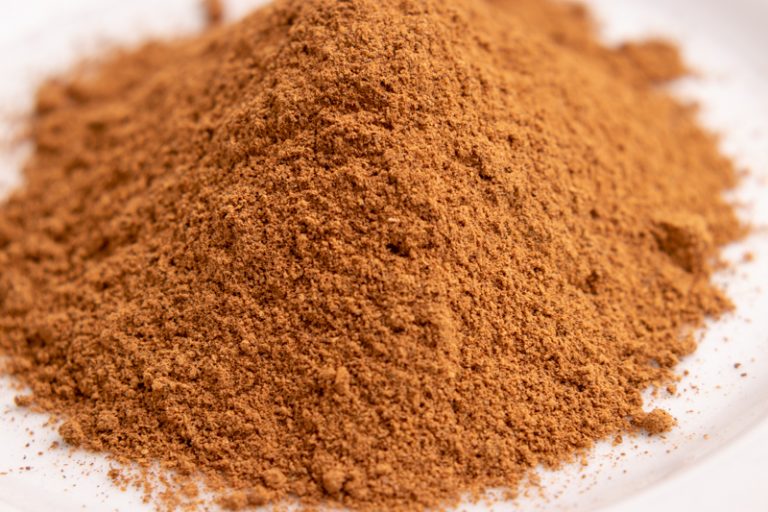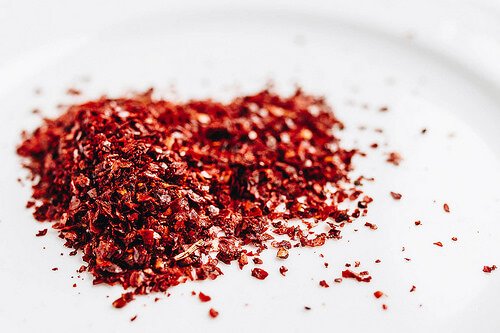How Long Does Thyme Last? Does Thyme Go Bad?
You have an old container of dried thyme in storage, and you’re not sure if you can still use it. Does thyme go bad?
Or you’ve bought fresh thyme for the first time, and you need to know how long you can store the leftover sprigs. How long does fresh thyme last?
If either sounds familiar, this article is for you. In it, we cover:
- storage practices and periods for thyme, both dried and fresh
- whether or not dried thyme spoils, and how to tell if your fresh thyme is done for
Sounds interesting? Let’s dig in.
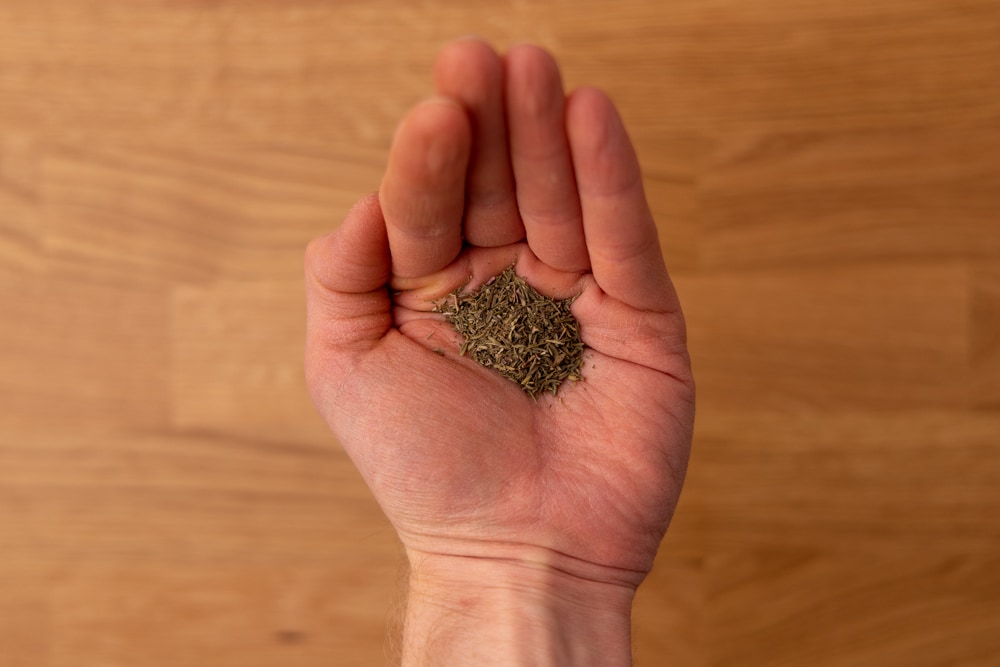
How Long Does Thyme Last?
Fresh thyme keeps for between a week and two weeks. If you need more time, you can freeze or dry the leftover sprigs.
Dried thyme retains the best quality for about six months to a year, but you can use it for months or even years longer.
Like all fresh herbs, thyme doesn’t keep for that long. You can expect it to retain quality between 7 and 14 days in the fridge, depending on how you store it.
Fortunately, you can make it last for much longer if need be (more details in the next section).
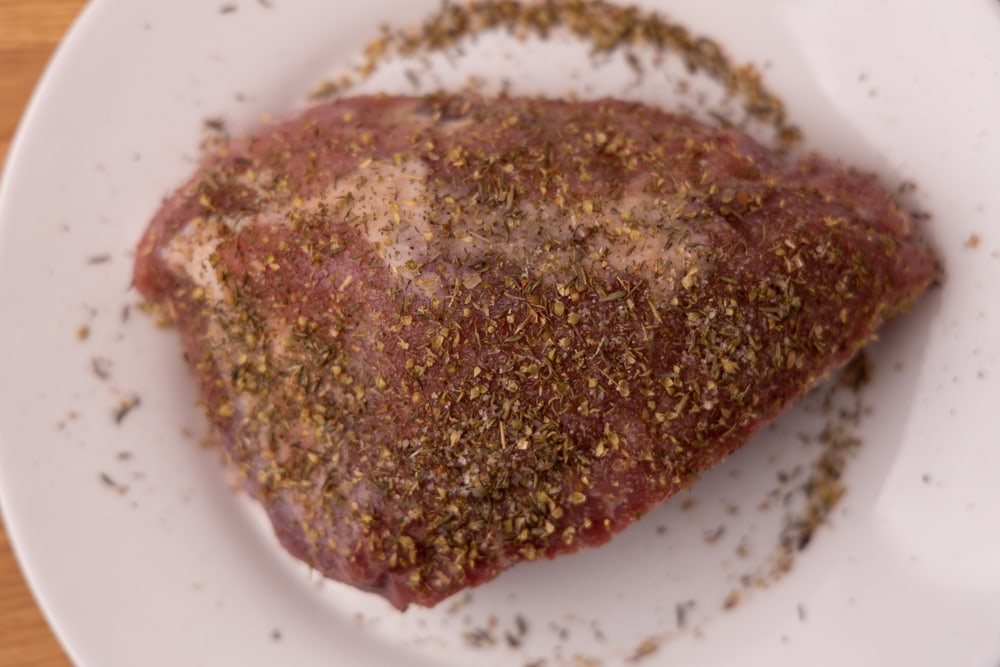
When it comes to dried thyme, it’s like dried basil, nutmeg, or any other herb sold in powdered form. That means the date on the label is for best quality only, and you can use the thyme for as long as it retains any flavor.
If your dried thyme is quite old and its aroma and taste are muted, use more of it to make up for that. This way, you’ll finish the bag or container earlier, and the flavor of your dishes won’t be affected (that much).
| Room temperate | Fridge | |
|---|---|---|
| Thyme (fresh) | 1 – 2 days | 1 – 2 weeks |
| Thyme (dried) | Best-by + 6+ months |
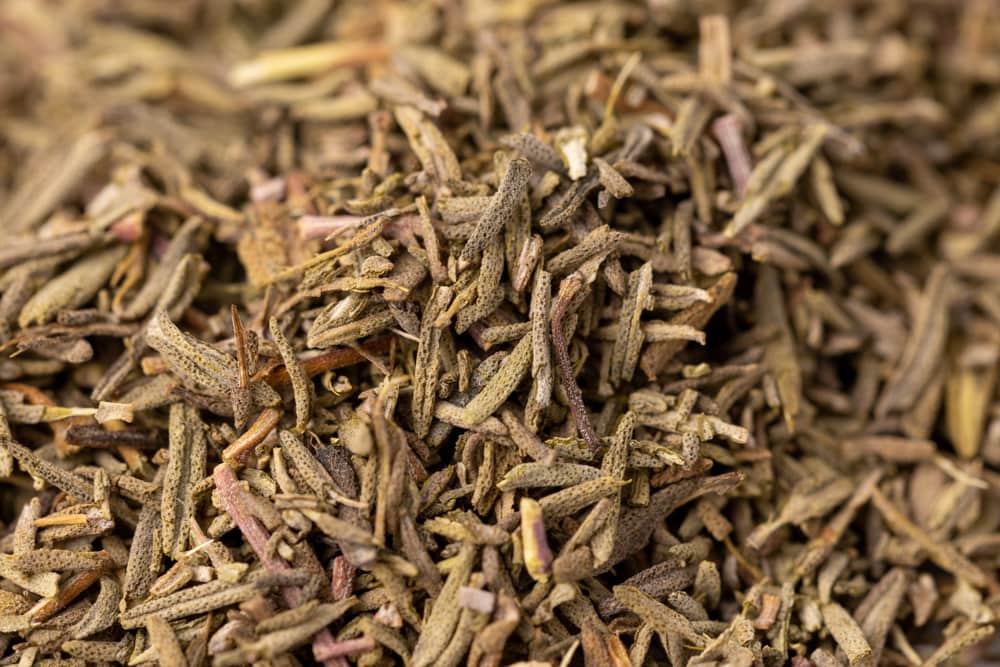
How To Store Thyme
Fresh thyme needs refrigeration if you want it to last for more than a few days. Store it in a plastic bag with a moist paper towel for best results. Dried thyme should sit in a cool and dry place, tightly sealed.
Storing dried thyme is no rocket science. All it needs is to be away from any moisture.
I always suggest storing dried spices in airtight containers because that method is the safest for long-term storage. But I don’t always follow my own advice.
I buy ground thyme in small bags (see photo), and I just wrap up the top to reduce airflow and keep its quality for longer. And that works perfectly well for me and might work just as good for you if you keep your spices in a dry place.
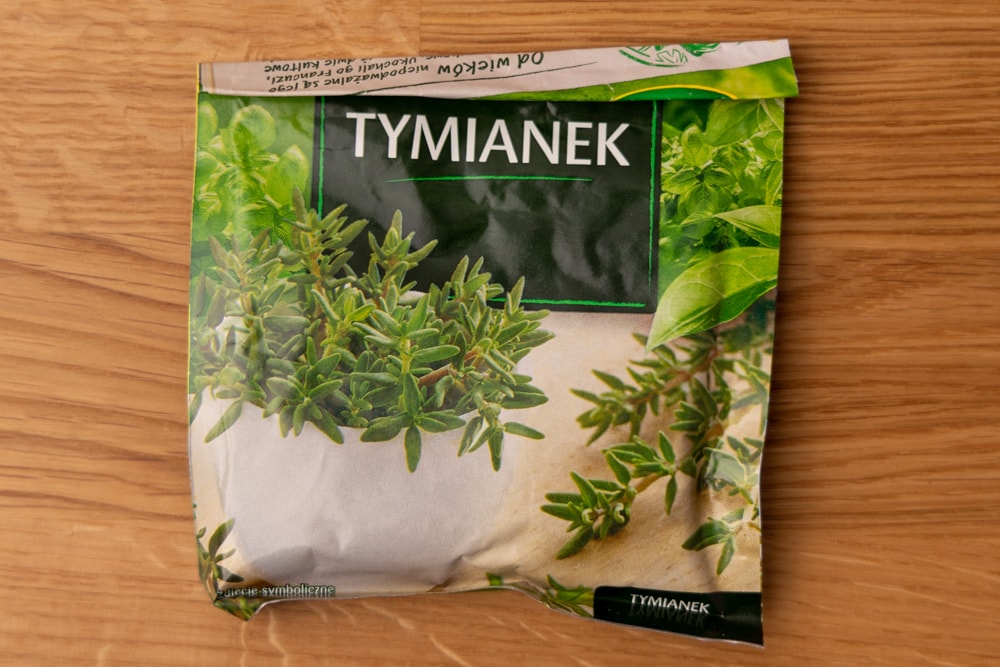
When it comes to fresh thyme, things are a bit more complicated. Sure, you can toss the bunch into the fridge, but that’s far from perfect.
Instead, you should either loosely wrap thyme sprigs in plastic wrap ([ISU]) or wrap them in a moist (not wet) paper towel and place them in an unsealed plastic bag. The latter requires a bit more effort, but it’s the better solution.
The idea here is to keep the thyme humid but still allow for some airflow to avoid moisture buildup, which might lead to the herb spoiling early.
If you need to store fresh thyme for longer than two weeks, you can either dry the sprigs or freeze them.
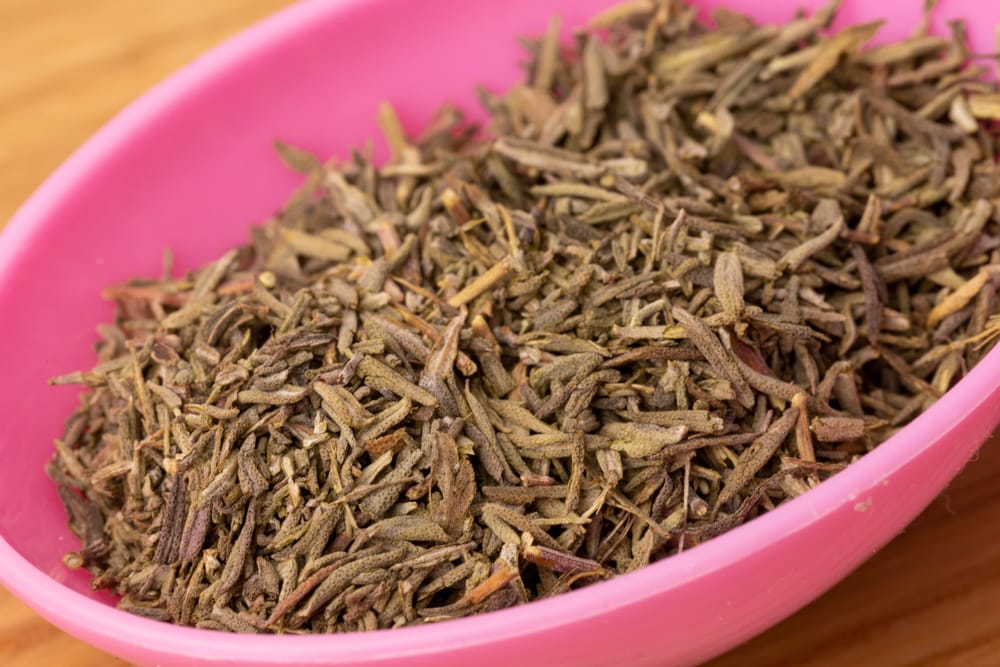
How To Easily Dry Fresh Thyme
To dry fresh thyme, do the following ([ISU]):
- Wash the thyme under running water and pat it dry.
- Tie the sprigs in bunches and hang them indoors (at room temperature) in a well-ventilated area out of direct sunlight.
- Let the leaves dry, which usually takes between 5 days and two weeks, depending on the temperature, humidity, and how tight you tie the bunch.
- Remove dried leaves from the sprigs, and place them in an airtight container.
All it takes is about 10 minutes of work and up to two weeks of waiting. Once done, you have “homemade” dried thyme on hand that can last months.
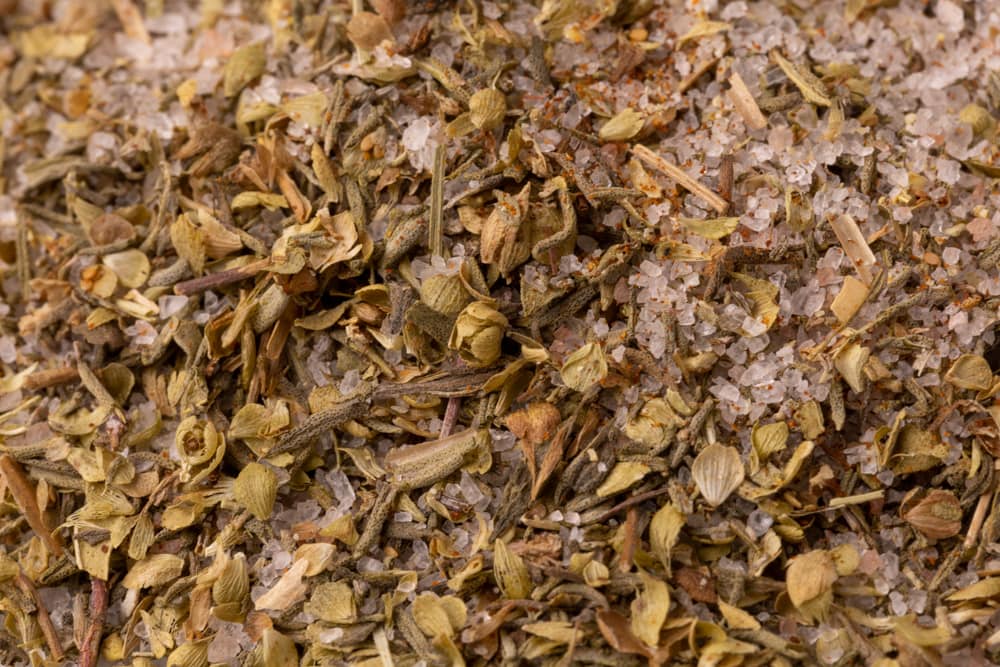
How To Quickly Freeze Fresh Thyme
This is one of the easiest ways to freeze fresh thyme. Here’s how to do it ([ISU]):
- Wash the herb and pat it dry. The latter is crucial because you don’t want any water drops or moisture in the freezer.
- Put the sprigs in a plastic bag and place the bag in the freezer. Leave it there until everything freezes. Overnight should be good enough, even if there are a few bunches.
- Roll over the frozen sprigs in the bag to separate the leaves from the stems. Throw out the stems and put the rest back in the freezer.
That’s it. Again, it only requires a few minutes of work to get it done. Now you can store the frozen thyme in the freezer for months without worrying it will go bad.
When it comes to thawing, usually there’s no need to do that. You can just scoop how much thyme you need from the bag and add it directly to the dish you’re prepping. It will defrost in a matter of minutes.
Frozen thyme works best in cooked dishes and doesn’t work that well for garnishing salads. The leaves will be mushy after they thaw.
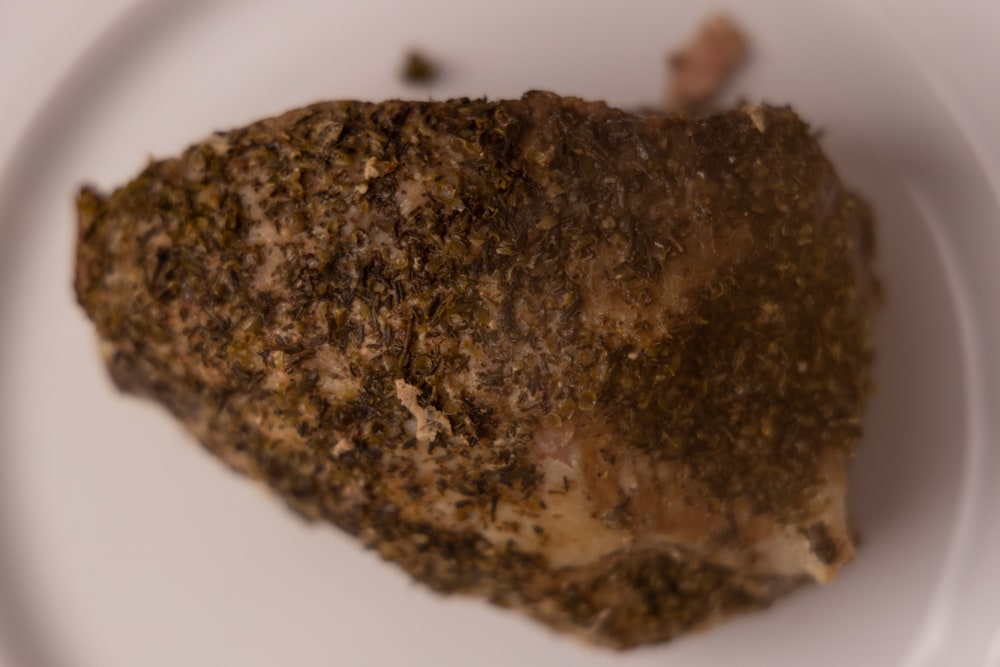
Does Thyme Go Bad? How To Tell If Thyme Is Bad?
Dried thyme doesn’t go bad unless moisture or pantry bugs find their way into the container or bag. But it loses potency over time, and at a certain point, it becomes pretty much useless.
To know if your ancient dried thyme is worth anything, you can do a simple test.
Crush and rub a small amount between your fingers, then give it a whiff and taste it. If there’s hardly any smell and taste, open yourself a new package and discard this one. The same process works for rosemary or other herbs.
Fresh thyme goes bad after a couple of weeks in the fridge. It’s spoiled if:
- everything is soft and slimy (you can cut out small mushy areas, though)
- the sprigs are wilted, which is caused by moisture loss (that’s usually accompanied by loss of flavor)
If your fresh thyme sits in the fridge for more than two weeks and it’s already started deteriorating, you can grab the best sprigs and discard the rest.
Sources
- ISU – Thyme | Horticulture Research Station Community Produce
- UOC – Herbs – Vegetables English UC Postharvest Technology Center
Rotten Records: Share Your Snap!
Caught some food past its prime? Upload your photo to “Rotten Records” and help others spot the signs of spoilage. Every image makes our food community safer and more informed!
